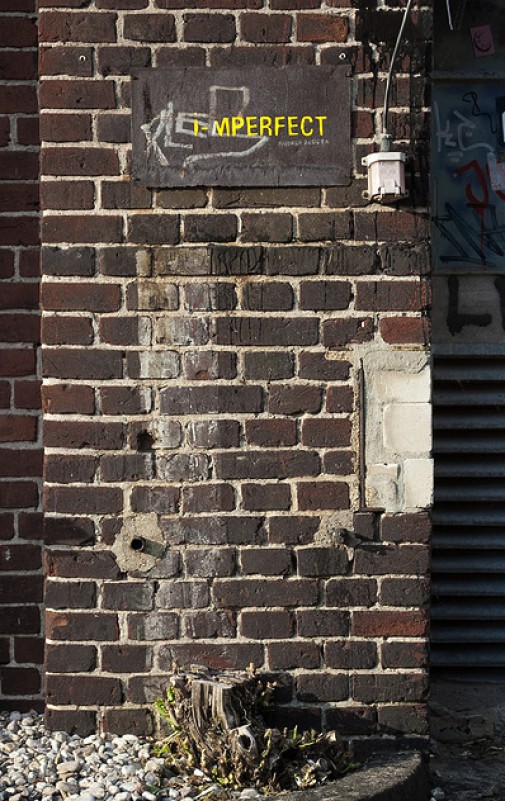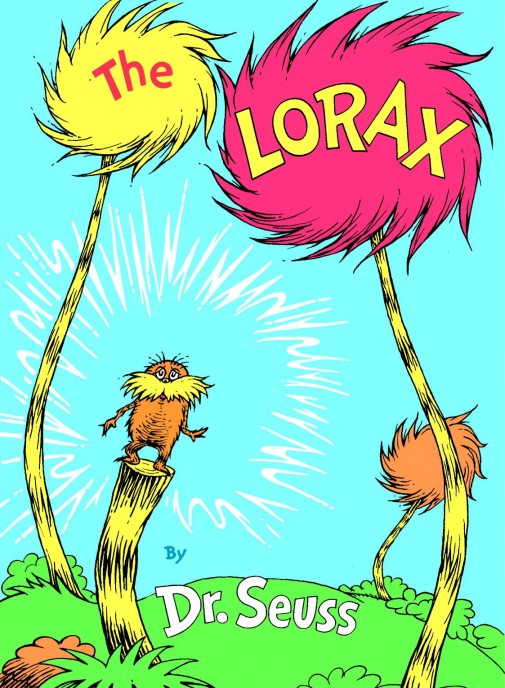Have you noticed a growing backlash against the idea of “perfection”? And a growing appreciation of the imperfect? A move towards hand-stitched, hand-turned, hand-made rather than mass-produced, machine-made? Lots of people on Tumblr stating “I am imperfect” or “my imperfections are what make me me” in their bios?
I thought at first it was just me who yearned for, let’s just call it ‘the human touch’ for now in goods and clothes as well as service. I thought I was being slightly odd in, for example, asking the man selling Christmas trees for an imperfect, “more natural-looking” tree. He was surprised, I guess most people want the most ‘perfect’-looking, idealized tree and the growers attempt to grow that kind of ‘perfect’ tree.
{He wanted to give me a destined-for-the-skip “reject” for free but I gave him £7.50 for it. Ironically, it was magnificent: the bushiest, straightest most idealized Christmas tree I’ve ever had!} Imagine how many trees were chipped as not perfect-enough to be offered for sale…?
I’ve been thinking about how the media and advertising has for decades attempted to persuade us that we should look for, and expect, perfection in all things – that we should indeed aspire to “perfection” – the ‘perfect’ recipe solution to your friends-for-lunch dilemma(!) – the ‘perfect’ sauce for pasta, the ‘perfect’ coat for a night out and so on.
The other side of this is that as consumers we’ve expected perfection in the things we buy – from perfectly-shaped vegetables to perfectly-finished clothes and household linens. We’d throw our arms up in horror if we paid big bucks for something only to find a tiny flaw. Why? Because we’ve bought-into the promise of perfection.
We’ve bought-into it so much that our expectations of everything from the things we buy to our own selves, our homes and the behavior of everyone around us are SKY-HIGH.
No wonder we are so often disappointed in life!
Moreover, manufacturers closing the vicious circle of create-desire-for-perfection-in-people by giving us perfectly-produced high street goods has also meant enormous sacrifices have been made by factory workers in poorer countries who, as you know are possibly children and definitely vulnerable members of society. Consider also the villages soaked in pesticides – pesticides used to protect crops so they are ‘perfect-looking’ and will therefore sell.
Supplying nothing but perfect items has meant shocking wastage – imperfect goods, including garments are thrown into landfill.
It should be acknowledged that some companies including one particular high street store do try to alleviate the waste issue by cutting their brand label off the garments they don’t feel are perfect enough to offer for sale under their brand, but which have passed through the manufacture quality control and transit processes, by donating these brand-new and usually only marred in tiny, unnoticeable ways to charity shops.
And now we’re becoming bored of perfect and longing for something more ‘real’ looking, the laws in the UK changed last year so that food producers are able to offer ‘imperfect’ shaped fruit and vegetables through supermarkets as they used to do, and have continued to do at farmers markets and such-like, rather than get dumped because they don’t look like an idealized notion of what perfect fruit and vegetables should look like.
As consumers demanding and expecting perfection, we’re funding and perpetuating a system that is on is knees trying to produce perfection and in doing so having to cut corners in all kinds of saddening ways to bring that perfection to us; in costs/cheap labor (making up for the waste of imperfect items not being put up for sale) through to investing in new technologies in an attempt to create a completely, laughably unnatural state of ‘perfection’.
I’ve even noticed people selling handmade goods attempting to make them look perfect, like they were made in a factory. WTF? This is a completely upside-down idea! We would feel much better embracing our own handwork than attempting to replicate a human-less factory look.
I think this system is going to implode. Such levels of perfection at such cost to fulfil an empty promise of perfect is not sustainable.
What really bothers me though is this sinister idea that perfection is a good thing and that everything, including us, might want to aspire to being perfect. The inference throughout western society is that we strive to be ‘perfect’.
No wonder plastic surgery is on the increase, no wonder so many people feel they are falling short of the mark; physically, emotionally, mentally. With our society actively providing so much ‘perfection’ and creating a sense that this perfection is in some way normal – and with so little tolerance of human mistakes – no wonder we feel a sense of not-good-enough followed through with a lack of self-confidence, self-value and self-love.
Being imperfect is being honest-to-goodness natural. Imperfection is beautiful, it’s human, it’s also divine. In fact, it’s the perfect way to be.

